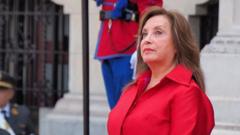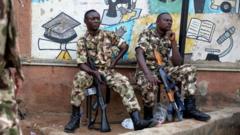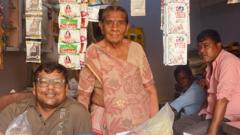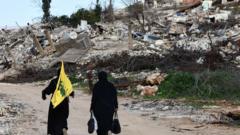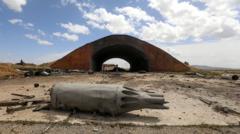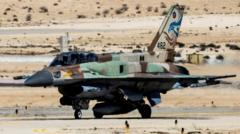As Syria transitions to a new political landscape, tensions escalate as the interim government demands the Kurdish-led Syrian Democratic Forces disarm and integrate into a national military force, complicating the path to dialogue and potential governance.
Tensions Rise as Syrian Leaders Demand Kurdish Forces Disarm

Tensions Rise as Syrian Leaders Demand Kurdish Forces Disarm
New interim government in Syria presses for disarmament of Kurdish militia amid national dialogue preparations.
Amid the fallout from the fall of the Assad regime, Syria's new leadership is confronting a formidable challenge regarding the Kurdish-led militia, the Syrian Democratic Forces (SDF), which has been a crucial ally of the United States in the fight against the Islamic State. Recently, the interim government in Damascus has insisted that for the SDF to participate in a national dialogue leading to a new caretaker government, they must disarm and become part of a unified military structure. This demand has stirred significant tension, particularly as the SDF has maintained its arms since the ousting of dictator Bashar al-Assad.
Hassan al-Daghim, who heads the government committee focused on organizing the dialogue, emphasized that armed groups would be excluded from discussions unless they committed to integrating their forces under the national Ministry of Defense. This condition raises concerns that the Kurdish-led region in northeastern Syria, effectively controlled by the SDF, could be marginalized in the upcoming political processes.
Despite pressure from the new government, the SDF has steadfastly refused to disarm, citing ongoing security concerns regarding potential threats from remnants of the Islamic State, which remains a significant issue for both local and international stakeholders. As plans for a national dialogue conference develop, the lack of clarity surrounding dates and participation only intensifies the uncertain future of Syria's governance and the role of the SDF in it. The situation highlights the complexities and challenges that the new leaders will face while trying to unite a fractured country.
Hassan al-Daghim, who heads the government committee focused on organizing the dialogue, emphasized that armed groups would be excluded from discussions unless they committed to integrating their forces under the national Ministry of Defense. This condition raises concerns that the Kurdish-led region in northeastern Syria, effectively controlled by the SDF, could be marginalized in the upcoming political processes.
Despite pressure from the new government, the SDF has steadfastly refused to disarm, citing ongoing security concerns regarding potential threats from remnants of the Islamic State, which remains a significant issue for both local and international stakeholders. As plans for a national dialogue conference develop, the lack of clarity surrounding dates and participation only intensifies the uncertain future of Syria's governance and the role of the SDF in it. The situation highlights the complexities and challenges that the new leaders will face while trying to unite a fractured country.






